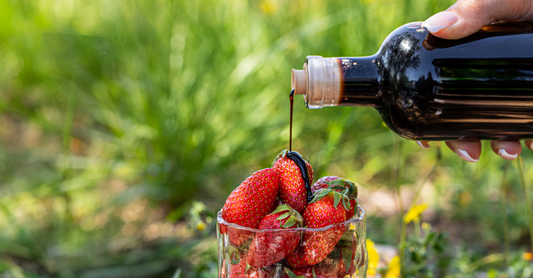Olive oil is a mainstay of the Mediterranean diet, a valuable source of health-promoting monounsaturated fats. It is produced primarily in Mediterranean countries, including Italy, Spain, Greece, Portugal, Tunisia, and Morocco . Olive oil is renowned for its many health benefits, including reducing inflammation, improving digestion, and lowering cholesterol. Rich in antioxidants and vitamin E , it is also an excellent source of omega-9 and oleic acid , essential fatty acids. Among the various varieties, Calabrian olive oil is particularly prized for its exceptional quality.
Different types of olive oil
There are several types of olive oil, each with specific characteristics and uses. Extra virgin olive oil is the purest and most nutrient-rich, obtained by cold-pressing olives. Virgin olive oil is also obtained by cold-pressing, but it may contain flavor defects. Refined olive oil is obtained from the second pressing of olives and is treated to remove defects. Organic olive oil is produced without the use of pesticides or chemical fertilizers. Each type of oil has its place in the kitchen, depending on taste and nutritional needs.
Understanding the quality of olive oil
A true pillar of the Mediterranean diet , olive oil is prized for its richness in monosaturated fatty acids , particularly oleic acid. This promotes heart health by reducing inflammation and arteriosclerosis. Extra virgin olive oil , produced from the first cold pressing of olives, is recognized as the healthiest thanks to its high content of polyphenols , powerful antioxidants. Combined with a high concentration of vitamin E, these polyphenols make extra virgin olive oil a superfood for healthy skin and hair. Specific varieties such as PDO olive oil from Calabria, Italy, Spain and Greece are renowned for their superior quality .
Factors influencing the quality of olive oil
Several factors determine the quality of olive oil, including the age of the olives, the pressing method, and the refining process. Oils obtained from the second or higher pressing are generally of lower quality. Virgin and extra-virgin olive oils are the purest because they are produced by cold pressing, which preserves all the nutritional benefits of the olives. Organic olive oils are also highly valued for their lack of pesticides and other potentially harmful chemicals. Furthermore, the location of production plays an important role: Mediterranean olive oils, produced in Greece, Italy, Spain, Portugal, Morocco, and Tunisia, are particularly renowned for their high quality.
How to Read Olive Oil Labels
Understanding olive oil labels can help you choose the best quality. The terms "extra virgin" and "virgin" refer to the first cold pressing of the olives, which guarantees high-quality olive oil. The DOP (Denominazione di Origine Protetta) and IGP (Indicazione Geografica Protetta) labels on Italian olive oils are guarantees of quality and origin. Additionally, a quality olive oil should have low oleic acid and high polyphenol levels, indicating good oxidative stability. Finally, unrefined, non-hydrogenated, and organic oils are generally the healthiest.
The Health Benefits of Olive Oil
The quality of olive oil is widely recognized for its many health-promoting properties . Thanks to its richness in antioxidants and polyphenols , it helps fight inflammation and cardiovascular diseases such as arteriosclerosis . In addition, it contains high levels of vitamin E and omega-9, which are essential for healthy skin and hair . Consumed as part of a Mediterranean diet , olive oil contributes to good digestion and the reduction of bad cholesterol .
Nutritional Benefits of Olive Oil
Extra virgin olive oil , produced by the first cold pressing , is considered the healthiest. It is rich in oleic acid , a type of monosaturated fat that contributes to heart health. The olive varieties used, the age of the olive, and the pressing methods influence the nutrient content. For example, Calabrian olive oil or organic olive oil are particularly renowned for their nutrient richness. It is also important to note that olive oil is a high calorie source and should therefore be consumed in moderation.
Scientific research on olive oil and health
Numerous studies have demonstrated the health benefits of olive oil. For example, one study found that Italian olive oil , Spanish olive oil , and Greek olive oil can help prevent cardiovascular disease. Other research highlights the cognitive health benefits of French olive oil and oils from the Mediterranean . Finally, olive oil is also known for its skin care benefits.
The healthiest olive oil: extra virgin olive oil
Extra virgin olive oil stands out as the healthiest olive oil among all the available varieties. It is produced by pressing olives without using heat or chemicals, a process known as cold pressing . Extra virgin olive oil is rich in polyphenols , which are powerful antioxidants and help fight inflammation. It also contains healthy monounsaturated fats, including oleic acid (Omega-9), which can help prevent arteriosclerosis. In addition, it is an excellent source of vitamin E.
Characteristics of extra virgin olive oil
Extra virgin olive oil is considered to be of the highest quality due to its production method and nutritional profile. It has a distinctive taste that differs depending on the olive variety used and the terroir. Some of the best extra virgin olive oils come from the Mediterranean, including Calabrian olive oil , Italian olive oil , Spanish olive oil , and Greek olive oil . These oils are often certified DOP (Denominazione di Origine Protetta) or IGP (Indicazione Geografica Protetta), which guarantees their quality and provenance. Organic extra virgin olive oil is another excellent choice, as it is produced without pesticides or chemical fertilizers.
How to Use Extra Virgin Olive Oil to Maximize Its Benefits
Extra virgin olive oil can be used in several ways to maximize its health benefits. In cooking, it can be used for low- and medium-temperature cooking, salad dressing, and marinades. Extra virgin olive oil is a staple of the Mediterranean diet , known for its health benefits, including reducing the risk of heart disease. Outside of cooking, extra virgin olive oil can also be used for skin care and maintaining healthy hair . To ensure its quality, it is best to store it in a cool, dark place and use it within six months of opening.
Extra virgin olive oil is considered the healthiest of all the available varieties. Rich in oleic acid , a good source of monounsaturated fatty acids, it is also an excellent source of antioxidants and polyphenols that fight inflammation and protect the body from arteriosclerosis. Extra virgin olive oil is obtained by cold pressing , which preserves its beneficial properties. Olive oils from the Mediterranean , including Italian, Spanish, Greek, and Calabrian olive oils, are known for their superior quality. These oils often carry the DOP and IGP labels, guaranteeing their origin and quality. They are excellent for cooking, seasoning, and even for skin care or maintaining healthy hair.
Buying Guide for Healthy Olive Oil
When purchasing olive oil, it's essential to pay attention to certain details. Opt for unrefined extra virgin olive oil , as it retains the majority of its antioxidants and polyphenols. Look for DOP and IGP labels, which guarantee the product's quality and origin. Choose organic olive oils to avoid pesticide residues. Finally, check the age of the olive oil. Fresh olive oil has a higher antioxidant content. While olive oils from the Mediterranean are among the best, other regions such as Portugal, Tunisia, and Morocco also produce high-quality olive oils. Olive oil is a key component of the Mediterranean diet, recognized for its many health benefits, including digestion, cholesterol control, and maintaining a healthy weight.








 lucangeli.it
lucangeli.it